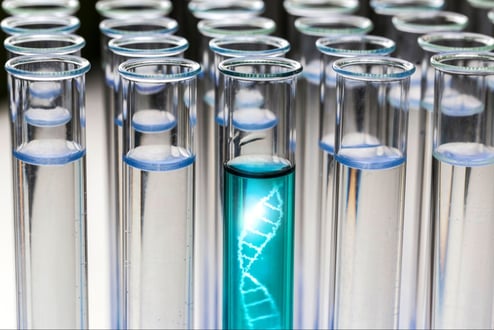Endometrial Cancer Biomarker Testing
What are endometrial cancer biomarkers?
Biomarkers are substances in blood, tumor or other tissue that can give doctors clues for treating cancer. Testing for are performed in a lab. tests that are performed on blood are sometimes called liquid biopsies.
Some tests are ordered routinely while others your doctor may order based on how it might alter their recommendations. These tests can give doctors clues about the cancer, including:
- how fast the cancer is growing
- which treatments are most likely to work
- whether or not the cancer is responding to treatment or growing
- whether or not the cancer has come back after remission
Biomarkers for treatment selection
tests may be used to select treatments, and help patients avoid side effects from treatments that will not work for them. tests used to select a specific treatment are sometimes called "companion diagnostic tests." These tests may be done on tumor tissue or (in many cases) on blood. See our Testing section for more information.
MSI and MMR testing
Experts recommend testing all endometrial cancers for biomarkers known as “" and, or "" ( or ). These biomarkers measure how well the tumor can repair certain types of damage. The results have similar meaning.
- Microsatellite instablity results are reported as MSI-H ( high), MSI-L ( low) or MSS (microsatellite stable).
- Mismatch repair results are reported as or (mismatch repair deficient) or pMMR or MMR-P (mismatch repair proficient).
- and cancers are common in people with a gene mutation.
- People with advanced or MSI-high endometrial cancer may respond well to a type of known as an .
- People with advanced, recurrent endometrial cancer that is not MSI-H, may benefit from the addition of chemotherapy with or a combination of the , Lenvima (lenvatinib) and the agent Keytruda.
Other biomarkers for endometrial cancer treatment
Examples of additional tests used in endometrial cancer include:
- A rare type of endometrial cancer—known as a uterine sarcoma—may have a genetic change called an NTRK fusion, which can be found on tumor testing. Endometrial cancer with an NTRK fusion may benefit from the Vitrakvi (larotrectinib).
- receptor testing is used for prognosis in early cancer, and for treatment selection in advanced and recurrent endometrial cancers.
- testing is used to find advanced or recurrent endometrial cancers that may respond to drugs that target the protein.
- Additional tumor testing, such as POLE and p53 may help identify people who are eligible for certain clinical trials.
Genetic testing for inherited mutations for treatment selection
About 10 percent of endometrial cancers are caused by an . Some genetic test results can help guide treatment decisions.
- People with are more likely to have MSI-H or cancers, which are more likely to respond to immunotherapies.
- People with advanced cancer and certain inherited mutations may qualify for a new targeted therapies such as PARP inhibitors, or other agents being tested in clinical trials.
Visit this page for more information on who should consider genetic testing and the genes associated with hereditary endometrial cancer.
Does insurance cover the cost for endometrial cancer testing?
Most private health insurers cover MSI or testing in patients with endometrial cancer who meet established medical criteria. Insurers may cover the cost for additional testing, especially in people with advanced cancers, however, out-of-pocket costs may vary depending on the type of test. Visit our sections on insurance and reimbursement for more information.
Participate in Research
In the News
FORCE Info on Lynch Syndrome
FORCE has in-depth information and support for people with Lynch syndrome.
Spot Her Campaign
Spot Her raises awareness of the signs of endometrial cancer and links people to information and resources.
SHARE Cancer Support
SHARE has support and education resources in English and Spanish for people affected by endometrial cancer.




